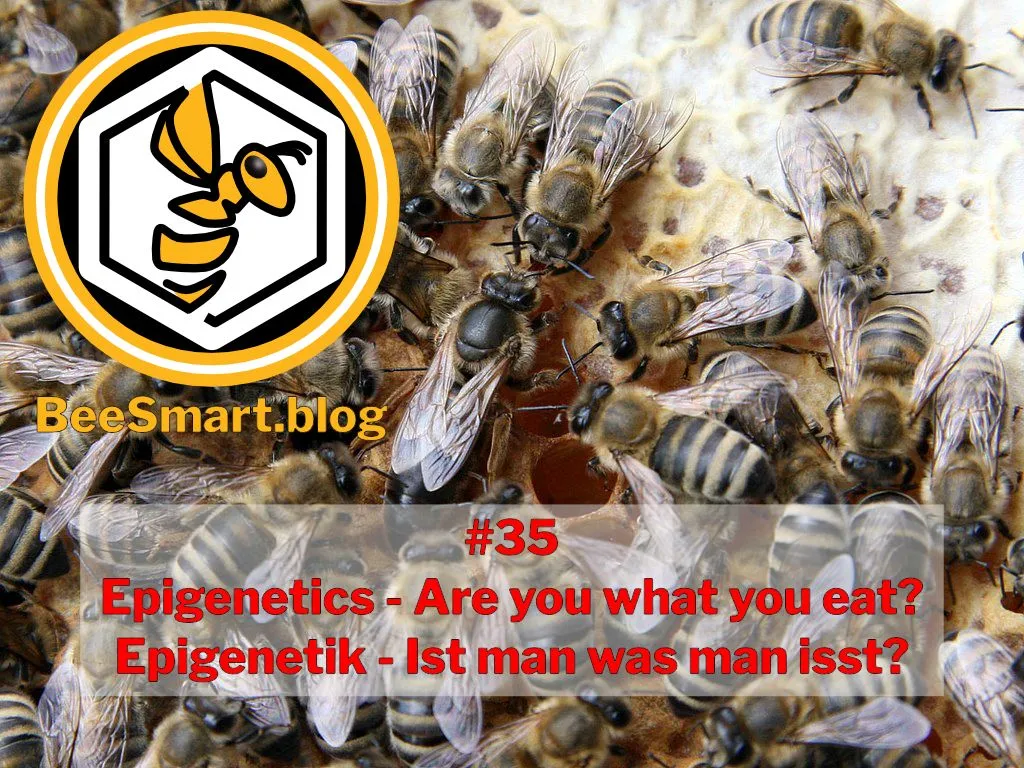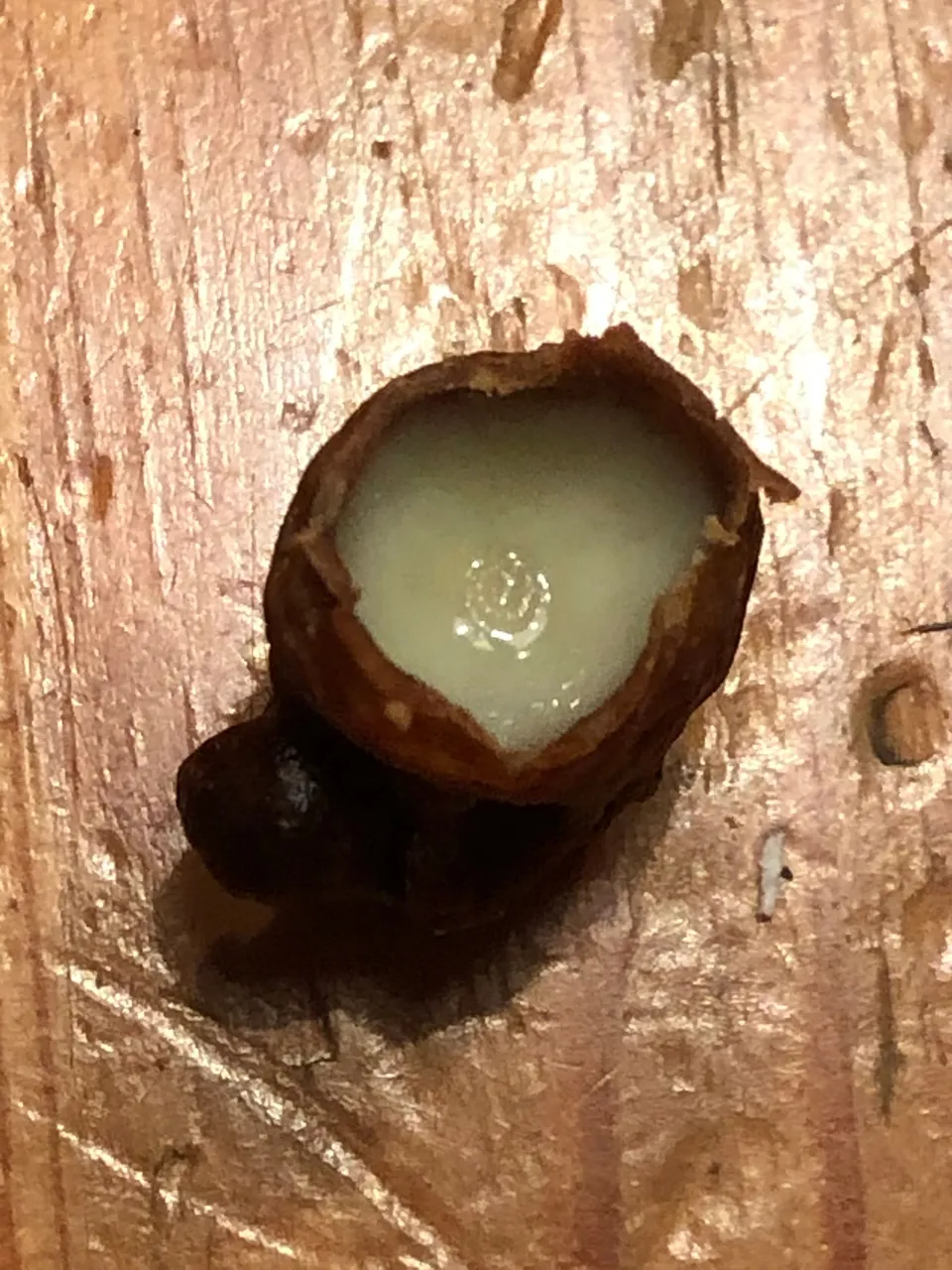
English
Epigenetics - Are you what you eat?
Some time ago I posted an article here about Propolis. Actually, I wanted to present another very interesting bee product today - royal jelly. However, I decided to put it on the back burner for a while in order to shed more light on what I consider to be an important aspect. It is about epigenetics in relation to royal jelly. I have been interested in this topic for quite a while and many books have been written about it and there are also some posts here.
Here in my words, a very abbreviated summary:
Epigenetics studies how external influences (food, stress, climate, ...) affect our genes. In essence, it is about specifically controlling our genetic make-up in the service of fighting and preventing disease.
These influences activate our genes temporarily or even permanently. The so-called epigenomes are responsible for this; you can think of them as switches that turn on certain gene activities and thus expose a certain trait. For example, humans also have the genes to form a tail. However, in the vast majority of cases, this switch is not turned on by the epigenomes.
And this is where our bees come into play - more precisely the queen bee.
Bee larvae of workers and queens are genetically absolutely identical, only feeding with royal jelly leads to the development of queens. This means that in bees, nutrition shapes the epigenome, which in turn determines the development of the individual.
Deutsch
Epigenetik - Ist man, was man isst?
Vor einiger Zeit habe ich hier einen Artikel über Propolis gepostet. Eigentlich wollte ich heute ein anderes sehr interessantes Bienenprodukt vorstellen – Gelée Royale. Ich habe mich aber entschlossen es noch etwas hintenanzustellen, um zuvor ein aus meiner Sicht wichtigen Aspekt genauer zu beleuchten. Es geht um das Thema Epigenetik in Bezug auf Gelée Royale. Dieses Thema interessiert mich schon eine ganze weile und es sind auch viele Bücher darübergeschrieben worden und es gibt auch hier einige Posts.
Hier in meinen Worten, eine sehr verkürzte Zusammenfassung:
Die Epigenetik untersucht, wie äußere Einflüsse (Nahrung, Stress, Klima, …) sich auf unsere Gene auswirken. Im Kern geht es darum, unser Erbgut im Dienst der Krankheitsbekämpfung und -Vorbeugung gezielt zu steuern.
Diese Einflüsse aktivieren unsere Gene vorrübergehend oder sogar dauerhaft. Verantwortlich dafür sind die sogenannten Epigenome; man kann sich diese wie Schalter vorstellen, die bestimmte Genaktivitäten einschalten und damit ein bestimmtes Merkmal freilegen. So hat der Mensch z.B. auch die Gene zur Ausbildung eines Schwanzes. Dieser Schalter wird von den Epigenomen jedoch in den allermeisten Fällen nicht angeknipst.
Und genau hier kommen jetzt unsere Bienen in Spiel – genauer gesagt die Bienenkönigin.
Bienenlarven von Arbeiterinnen und Königinnen sind genetisch absolut identisch, nur die Fütterung mit Gelée Royale führt zur Entwicklung von Königinnen. Das bedeutet, dass bei den Bienen die Ernährung das Epigenom prägt, welches wiederum über die Entwicklung des Individuums entscheidet.

The picture shows an open queen cell with royal jelly and a larva swimming in the middle.
Das Bild zeigt eine offene Weiselzelle mit Gelée Royale und in der Mitte schwimmt eine Larve.
I don't know of any animal in which this is as explicitly pronounced as in bees - but I'm happy to learn more if anyone knows of other cases.
In humans, too, it has been found that epigenomes can be influenced by climate, nutrition and psychological influences during life. This means that with the help of special nutritional supplements the targeted epigenetic prevention of diseases is conceivable.
Thus, royal jelly could unfold its positive effect on humans not only because of its composition (nutrigenetics), but also because of epigenetic processes. In any case, an exciting field of research for the future with philosophical approaches - what do you think?
In the next post I will go into more detail about the product Royal Jelly, how it is produced, how it is harvested, what properties it has and how it is used as a food supplement in alternative medicine.
Mir ist kein Tier bekannt, bei dem das so explizit ausgeprägt ist, wie bei den Bienen – aber ich lerne gerne dazu, falls jemand noch weiter Fälle kennt.
Auch beim Menschen hat man festgesellt, dass Epigenome im Laufe des Lebens durch Klima, Nahrung, seelische Einflüsse beeinflusst werden können. Das bedeutet in der Folge, dass mithilfe spezieller Nahrungsergänzungen die gezielte epigenetische Vorsorge von Krankheiten denkbar sind.
Somit könnte Gelée Royale seine positive Wirkung auf den Menschen nicht nur wegen seiner Zusammensetzung (Nutrigenetik), sondern auch aufgrund epigenetischer Vorgänge entfalten. Auf jeden Fall ein spannendes Forschungsgebiet für die Zukunft mit philosophischen Ansätzen – was meint ihr?
Im nächsten Post werde ich dann etwas genauer auf das Produkt Gelée Royale eingehen, wie es entsteht, wie es geerntet wird, welche Eigenschaften es hat und wie man es als Nahrungsergänzungsmittel in der Alternativen Medizin benutzt.